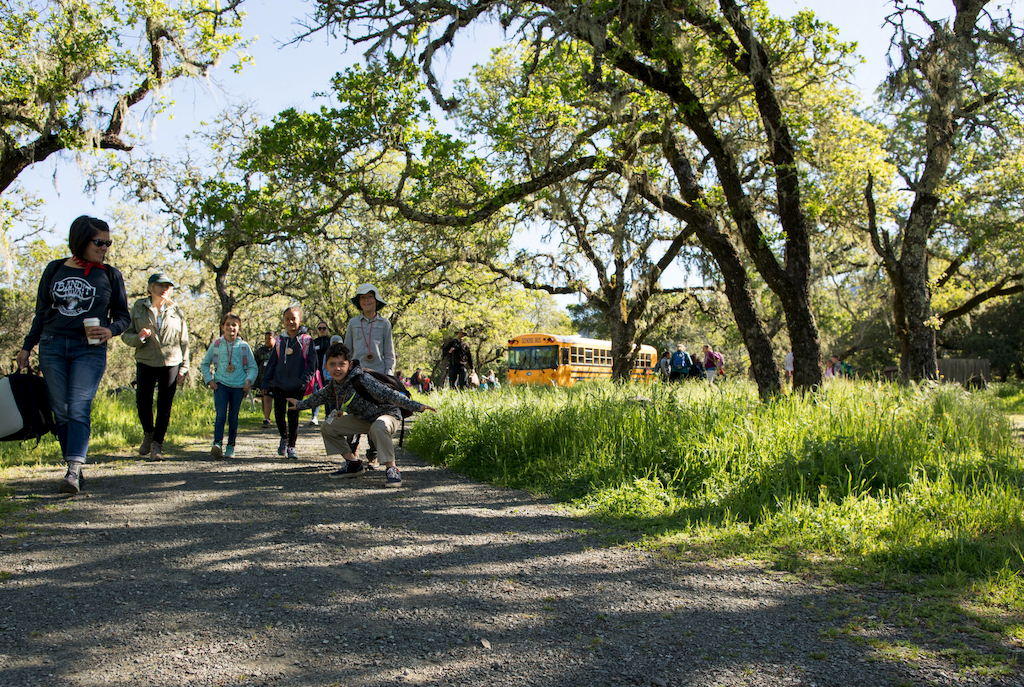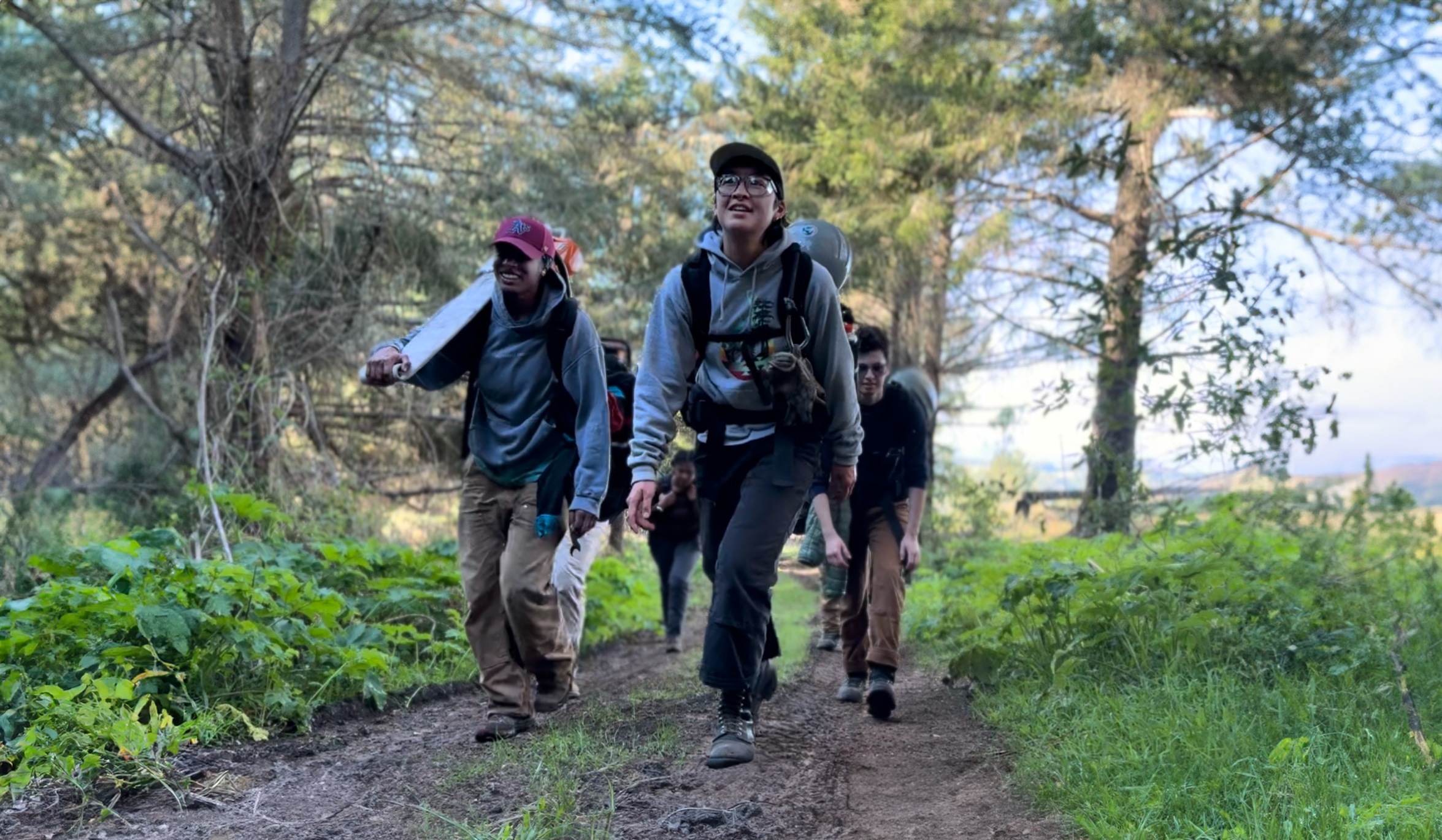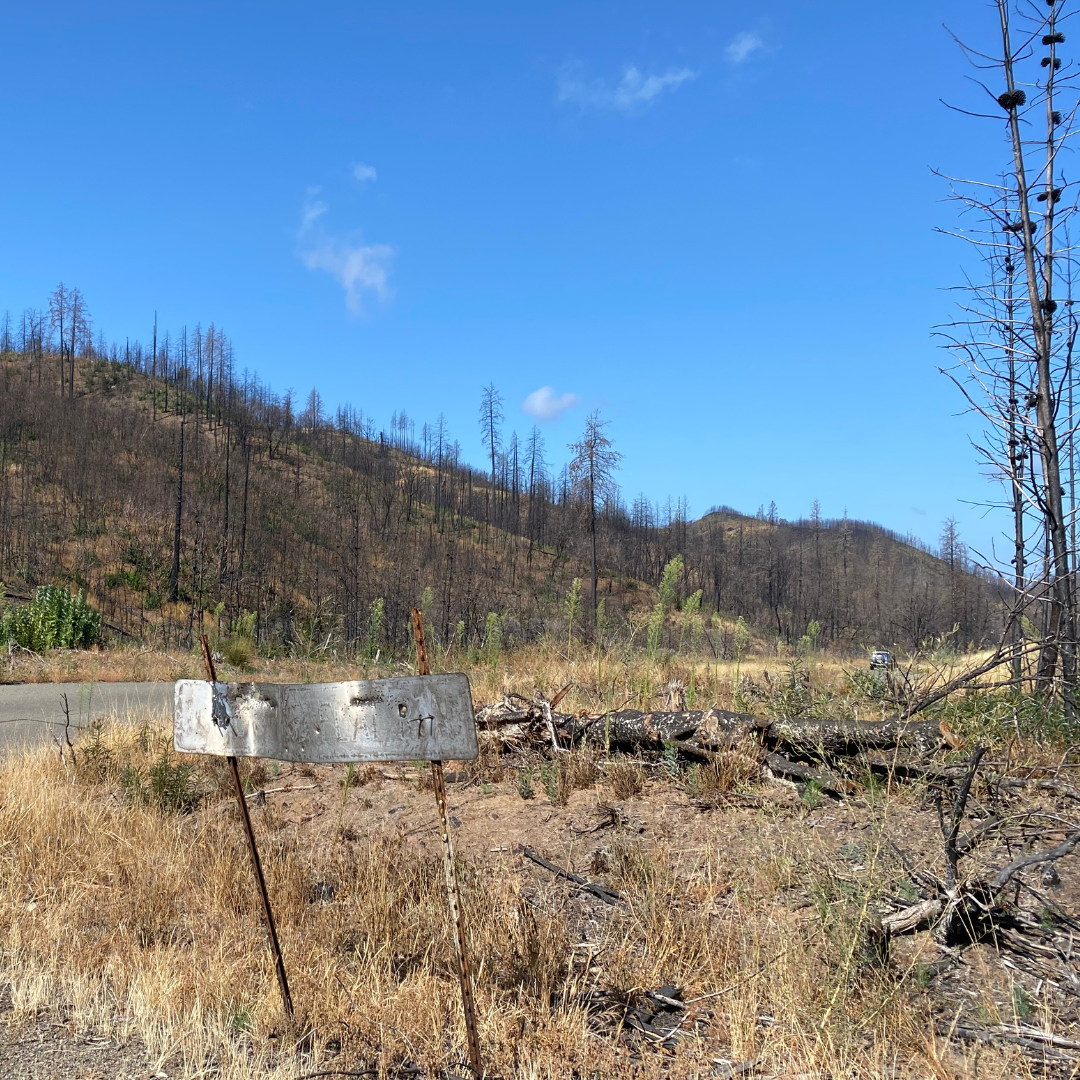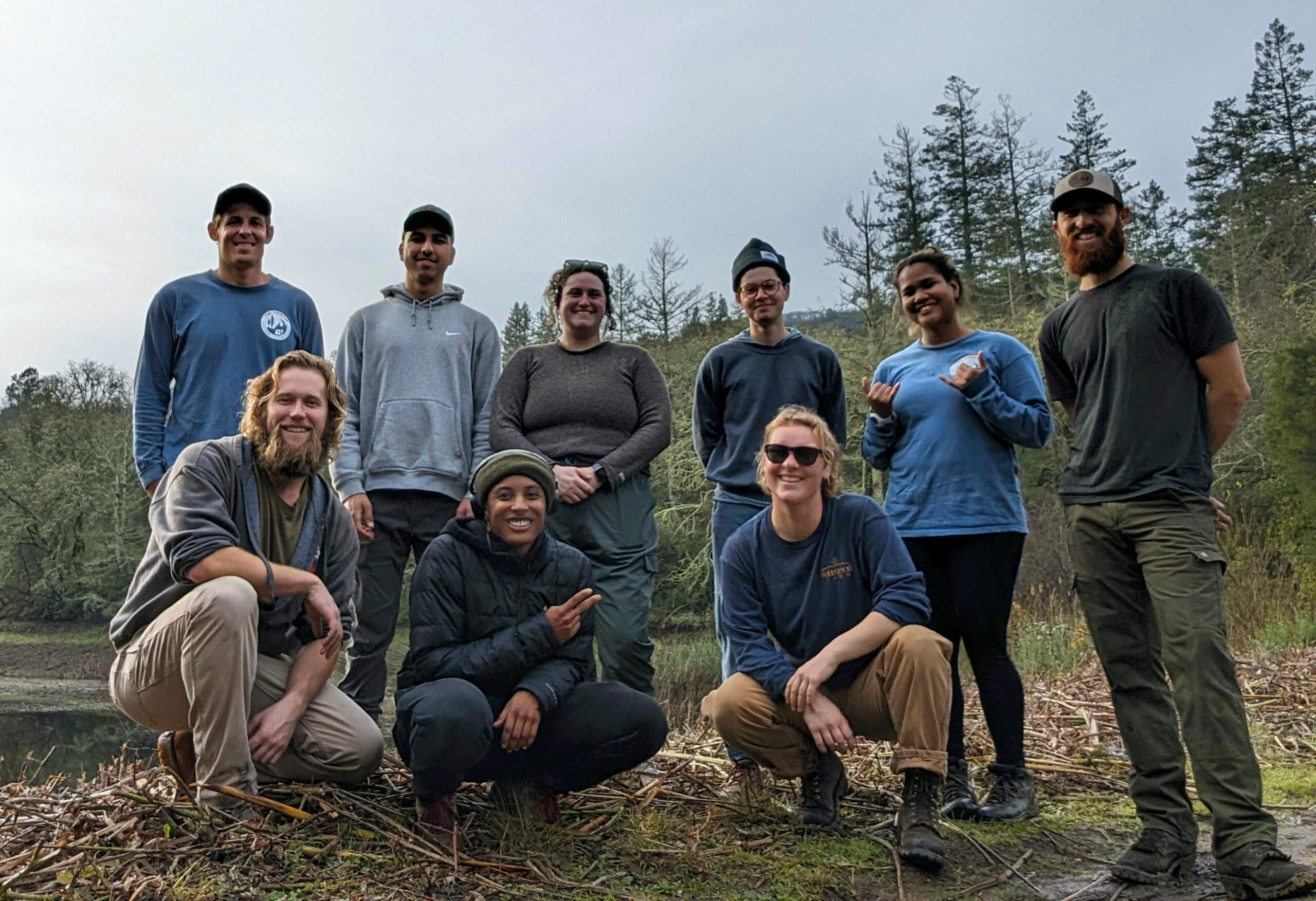|
Getting your Trinity Audio player ready...
|
Nationwide bus driver shortages have increased since Covid-19
Teachers and students at Bay Area schools want transportation to meaningful outdoor experiences such as those offered at Martin Griffin Preserve in Stinson Beach, but a nationwide bus driver shortage is leaving them waiting at the curb.
It takes a lot of coordination to make a field trip happen, whether a couple of blocks or a couple hours away. That coordination usually falls onto teachers who also manage students, grading, lesson preparation, administrative tasks, classroom dynamics, and more.
Martin Griffin Preserve offers redwoods and coastal grasslands at the edge of Bolinas Lagoon. Students have been visiting the preserve since 1967. Our education programs combine natural history and land stewardship, but bus shortages are limiting how many students we can serve.
Thousands of students used to visit the preserve each year
Now, due to driver shortages and funding shortfalls, post-pandemic numbers are closer to 600-800 students per year.
“Most of our students come from Marin, the East Bay, and San Francisco,” shares Catie Clune, director of education at Audubon Canyon Ranch. “Schools based outside of the Marin County school district are having a really hard time finding buses and drivers.”
There are many reasons for the shortages: with Covid-19, many drivers opted to retire early to avoid the added stress of working during the pandemic. And younger drivers are hesitant to accept a low-paying and often stressful job, especially in the Bay Area, where the cost of living is so high.
Another reason for the shortages is that it’s difficult for in-district buses based in San Francisco or the East Bay to get back to school in time for the end-of-day shift, especially after visits to places like Audubon Canyon Ranch’s Martin Griffin Preserve in Stinson Beach.
Teachers want students to experience joyful, place-based experiences in nature
Many times, bus companies don’t contact drivers until a week before the field trip, which is stressful for drivers and teachers. “We’ve also seen lots of last-minute cancellations and dramatic changes to the schedule, making it less appealing for teachers to coordinate field trips, even though they want their students to come here,” reports Clune.
Right now, only one bus company comes to Martin Griffin Preserve. Securing a private bus company is expensive, averaging $1,600 a trip. Since Audubon Canyon Ranch funds the trips, this high cost means that fewer students can participate in programs.
“It’s frustrating on a couple levels,” expresses Ann Park, a fifth-grade teacher at Bridges Academy at Melrose in East Oakland. “I recall a couple years ago trying to contact bus companies that used to go out to Martin Griffin Preserve. They said they no longer go there.”
Ms. Park adds that schools that receive federal dollars to support students are often the hardest hit by these chronic bus shortages. “We do not have [additional] school funds to pay for buses. And the costs have gone through the roof in the last couple of years, almost doubling. We are grateful that Audubon Canyon Ranch offers bus scholarships, because otherwise there would be yet another barrier to having our students access nature.”
Our bus scholarship is a reimbursement, to help reduce any financial barriers, so teachers do not need to rely on funding transportation via their own bank accounts. It also makes for a timely reimbursement, so teachers aren’t waiting months for reimbursement from their school district.
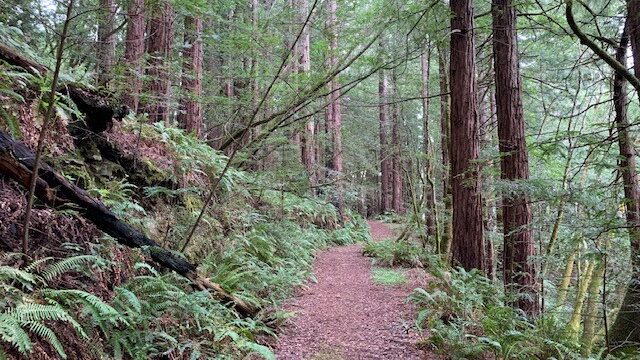
Students “really love being at the stream” at Martin Griffin Preserve
For Ms. Park, she wants her students to experience a beautiful place that offers hiking, learning about flora and fauna, and time “in beauty.” She also appreciates the “very patient and passionate docents who help the kids learn about the environment.”
Some student favorites in terms of sightings include banana slugs, snakes, and fox. “And of course, newts. The newts are popular,” she adds, hence why the stream is a favorite spot for students.
“Several students have said they like the ‘alone’ walk time. For many, it’s their first time out in nature like this. They appreciate the peaceful surroundings and getting time to just be alone in all this beauty.”
It’s hard to imagine students not having that opportunity to connect with themselves, each other, and nature, for transportation issues outside of their control.
Overnight programs and extended day programs offer partial solution
While not solving the root of the issue, overnight programs and extended day programs reduce the time pressure that limits many drivers from accepting longer routes from, say, Daly City to Stinson Beach.
“We’re asking ourselves lots of questions right now,” Clune reflects. “Should we push for extended day trips to maximize time on the land? Should we fundraise for in-house bus transportation services? Can we partner with regional agencies and nonprofits to solve this problem together?”
Teachers like Ms. Park also are getting creative with solutions.
“While we can do things like GoFundMe or DonorsChoose, or even write grants, that takes a lot of time and effort. Reimbursement can be tricky and time consuming too, plus, for teachers living paycheck to paycheck, writing a $1,600 [personal] check presents another barrier.” –Ms. Park
We don’t have all the answers yet, but we’re committed to figuring it out.
Donating to education programs helps Audubon Canyon Ranch fund bus transportation
While education directors like Clune brainstorm solutions and potential partners, people can still help by donating. Charitable donations to Audubon Canyon Ranch’s Education Programs underwrite short term solutions like granting transportation scholarships to schools now, as well the long-term work of identifying — and eliminating — barriers to access to nature.
